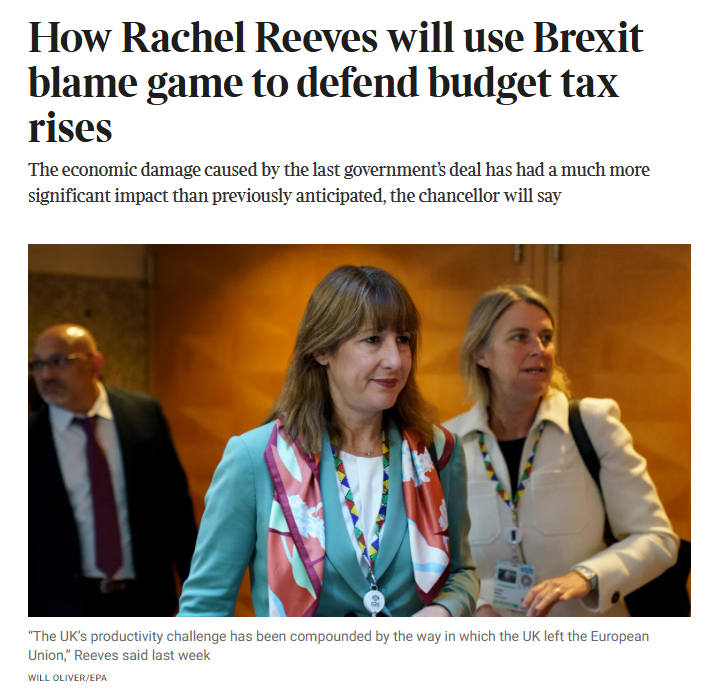The Times reports today that chancellor Rachel Reeves will, in the run up to the budget, seek to 'use Brexit blame game to defend budget tax rises' and I have to say that this highlights what is wrong with our political class.

The Chancellor was elected as MP for Leeds West and Pudsey in 2010. She was a Member of Parliament throughout the run up to the EU referendum campaign and the interminably long Brexit process itself. She was there and she consistently voted for Remain and for continued alignment with the European Union. There is nothing whatsoever that is wrong with that, she is a veteran MP with established views.
So it is particularly disappointing to read in The Times that "Reeves is attempting to blame the way in which Brexit was implemented under Boris Johnson's deal rather than Brexit itself. The chancellor is treading a delicate line as she tries to avoid the impression that she is blaming voters."
The Times goes on to say "There is evidence that the Bank of England and the OBR are prepared to support the government's narrative."
The point is this. There is an increasing body of evidence that shows Brexit has been damaging to our economy. In this the voters did get it wrong. The voters are not always right.
But instead of a politician of principle saying this clearly, Ms Reeves chooses to dance on the head of a pin.
The chancellor's popularity ratings are already monumentally bad and they are unlikely to turn round.
She would have far greater credibility with those who agree with her for being honest in who is to blame on an issue like this and to point out that she was right all along. It might not make her position any more secure but it would show she is a politician of principle.
And that is the problem with our current political class. There is too much triangulation of competing views, rather than honestly held ones. And it is the major reason why voters are being successively lured by Nigel Farage, they believe - right or wrong - he will tell them exactly what he thinks.
On that the voters may be right.